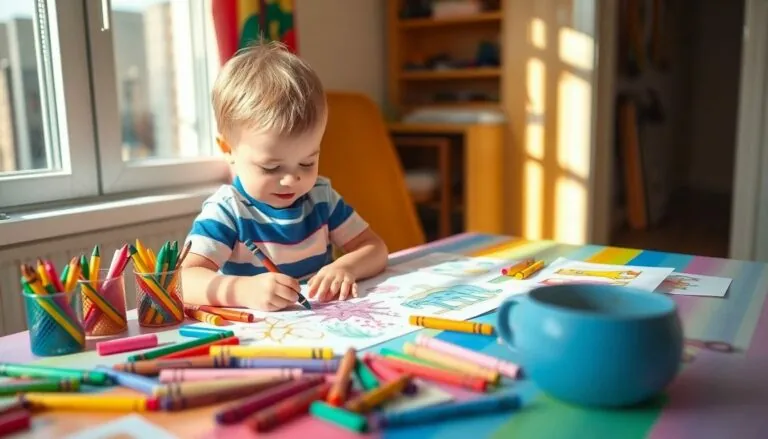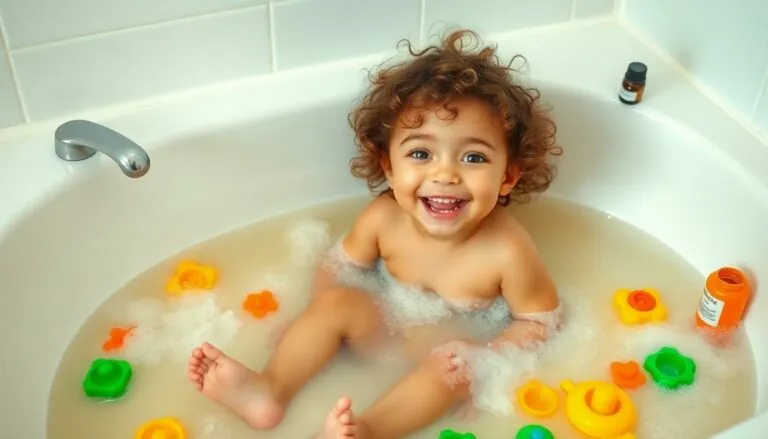Table of Contents
ToggleWhen a single parent goes to jail, it’s like tossing a grenade into a child’s world. Suddenly, their daily routine turns upside down, and the stability they once knew is replaced by uncertainty. The impact isn’t just immediate; it ripples through their lives, affecting everything from school performance to emotional well-being.
Imagine a child trying to process their parent’s absence while navigating the complexities of life. They might feel abandoned, confused, or even angry. It’s a tough situation that can lead to a host of challenges, but understanding these effects is the first step toward helping them cope. This article dives into the emotional and practical fallout of a parent’s incarceration, shedding light on what really happens behind the scenes.
Understanding The Impact
Incarceration of a single parent significantly affects a child’s life. The absence leads to various emotional and behavioral responses.
Emotional Effects
Children often experience intense feelings of abandonment when a parent goes to jail. Confusion arises as they struggle to understand the situation. Anger may manifest due to feelings of betrayal or loss. Many kids face anxiety about the future and worry about their parent’s safety. These emotional challenges can persist and hinder a child’s development. Mental health issues such as depression may also surface, highlighting the need for support during this critical time.
Behavioral Changes
Changes in behavior frequently occur when a parent is incarcerated. Some children display aggression as a way to cope with stress. Others may withdraw socially, isolating themselves from friends and family. Academic performance might decline, demonstrating a lack of focus in school. Many children exhibit impulsive actions or engage in risky behaviors. Parents or caregivers must recognize these changes and provide appropriate interventions to support the child’s emotional well-being.
Family Dynamics
The incarceration of a single parent significantly alters family dynamics. This change disrupts existing relationships and creates new challenges for children.
Changes In Household Structure
Children face abrupt shifts in household structure when a parent goes to jail. A caregiver often steps in to fulfill daily needs, creating potential strain. Relatives may take on these roles, leading to varying degrees of stability. New guardianship arrangements can introduce unfamiliar rules and expectations, challenging a child’s ability to adapt. These fluctuations affect emotional security, making children feel unsettled. Frequently, siblings must navigate their emotions alone, which can complicate family cohesion. Without a consistent parent figure, children may struggle with basic routines like meals and homework, increasing reliance on substitute caregivers.
Role Reversals
Role reversals can occur as children take on responsibilities beyond their age. Many feel the need to support younger siblings, pushing them into caretaker roles. Older children might assume additional household tasks, which can lead to stress and frustration. Shifts in authority dynamics become evident, as the parent figure is absent from decision-making processes. These changes can foster resentment and impact sibling relationships negatively. Emotional burdens from increased responsibilities can lead to behavioral issues and anxiety. Without guidance, children may face difficulties developing autonomy, potentially hindering their growth and self-esteem.
Support Systems
Support systems play a crucial role in helping children navigate the challenges of having a single parent incarcerated. They provide essential stability during tumultuous times.
Extended Family Involvement
Extended family often steps in to provide emotional and practical support. Grandparents, aunts, and uncles may take on caregiving roles, offering a familiar presence to children. In many cases, family members help maintain routines, which can mitigate feelings of chaos. Emotional stability can stem from shared experiences and a sense of belonging with relatives. Open communication with family members promotes understanding and helps children process their feelings. Visibility and regular interaction with extended family can significantly enhance a child’s coping mechanisms.
Community Resources
Community resources offer additional support avenues for children facing parental incarceration. Local organizations frequently provide counseling services and mentorship programs tailored to vulnerable youth. Access to after-school programs and recreational activities helps children build social connections, reducing feelings of isolation. Schools may offer support groups where children can share experiences and gain insights. Resources such as food assistance programs and financial aid ensure that basic needs remain met during challenging times. Awareness of these resources can empower caregivers and children to seek assistance when needed.
Long-Term Consequences
Incarceration of a single parent leads to significant long-term effects on a child’s life, impacting their emotional and social well-being.
Psychological Impact
Emotional turmoil defines a child’s experience when a single parent goes to jail. Anxiety and depression frequently surface, influencing daily functioning. Feelings of abandonment create deep-rooted insecurities. Children might grapple with intense confusion and frustration over their circumstances, leading to academic struggles. Disrupted routines hinder stability, leaving them with persistent stress. Counseling and therapy services can play vital roles here, guiding children to process their emotions healthily. Schools that provide mental health resources contribute significantly to a child’s coping mechanisms. Intervention at this stage often proves crucial, fostering resilience and emotional growth.
Social Stigmas
Social stigmas compound the difficulties faced by children with incarcerated parents. They often experience isolation from peers, leading to feelings of shame or embarrassment. Labeling by classmates can deter friendships and exacerbate emotional distress. Communities may overlook the unique challenges these children face, which can lead to social withdrawal. Many children avoid sharing their circumstances, fearing judgment. Reaching out to supportive groups can help break down these barriers. Additionally, schools that promote inclusive environments help counteract the negative perceptions associated with parental incarceration. Access to open conversations within families and communities cultivates a sense of belonging and acceptance, aiding in the healing process.
Conclusion
The challenges faced by children of incarcerated single parents are profound and multifaceted. Their emotional and behavioral well-being often suffers due to the abrupt absence of a primary caregiver. Support systems play a vital role in helping these children navigate their feelings and maintain stability.
By fostering open communication and leveraging community resources, caregivers can help mitigate the negative impacts of incarceration. Awareness and understanding of these issues are crucial in creating environments that promote healing and resilience. With the right support, children can overcome these challenges and work towards a brighter future.








